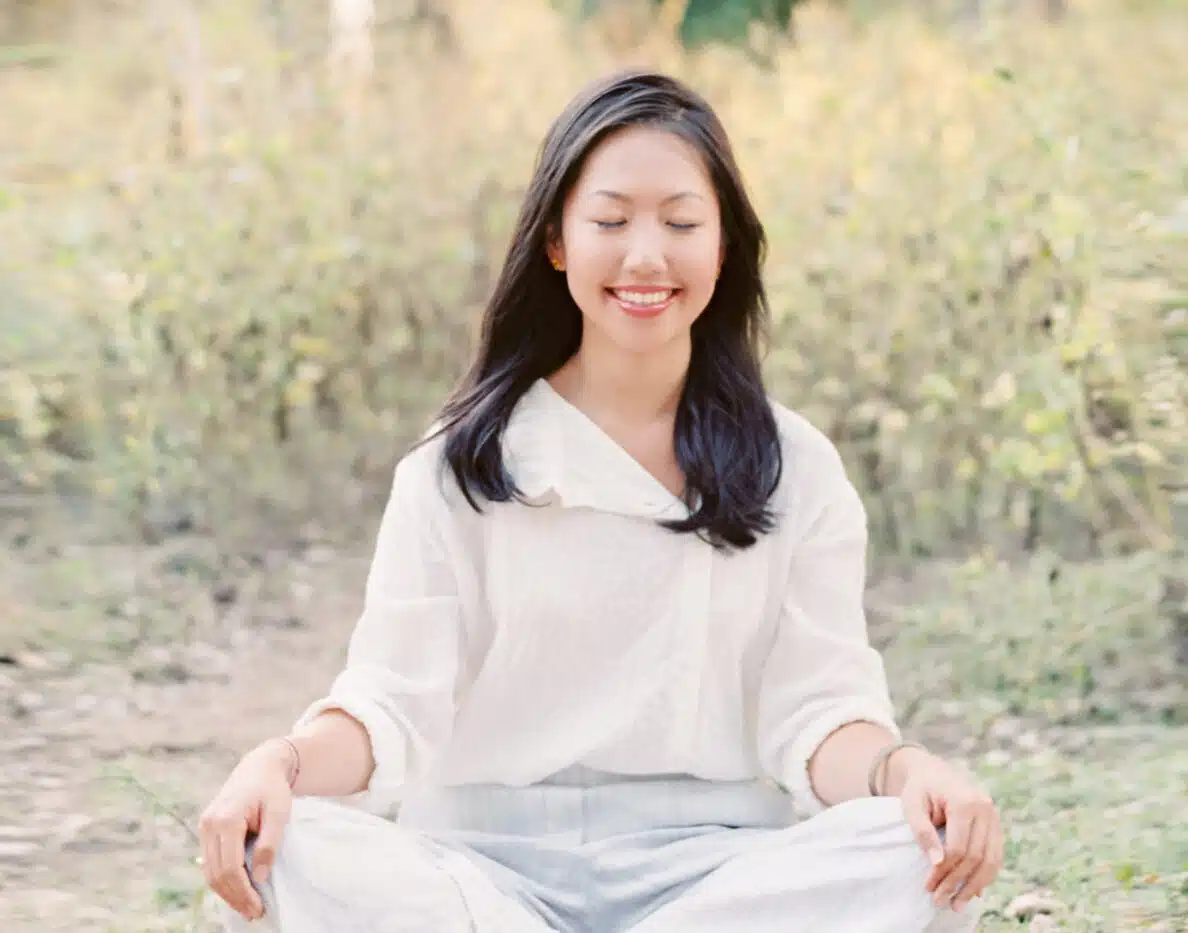Does Meditation Change Your Personality?
What do you think of when you picture a ‘serious meditator?’
Is it a monk, placidly living an ascetic lifestyle?
Is it a super-spiritual person who talks about their higher self?
Any habitual practice will change our thoughts and behavior over time, and different styles of meditation will affect us differently. If you’re wondering if Vedic Meditation can change your personality…It can! But not in the ways you may suspect.

Meditation and Personality Change
It’s understandable that many people imagine meditation will make them stoic and Zen to the point of inactivity. Many of our ideas of meditation came from monastic traditions. If you worry that meditation will cause you to lose yourself and become consumed by the world you experience when your eyes are closed… you’ll be happy to hear that Vedic Meditation works almost the opposite way.
Though many kinds of meditation encourage you to feel spiritual sensations or concentrate and focus to banish thoughts, Vedic Meditation is effortless and allows thinking.
For those who believe that they can only reach their preferred state while in meditation… Naturally, they will want to spend their time sitting still and closing their eyes.
With Vedic Meditation, you don’t meditate endlessly for hours. You practice for twenty minutes twice each day. That rhythm of 40 minutes total per day works with a busy lifestyle and is more effective in releasing stress than other methods that take hours and hours. With Vedic Meditation, the intention is to become a truer version of yourself throughout your waking life, not only when your eyes are closed.
What is a ‘personality?’
According to the Vedic Worldview, the personality you develop is a combination of the things that you love about yourself and the coping mechanisms or responses you’ve normalized to various stressors. As stressful events occur throughout your life, your brain creates stress memories intended to help you avoid those stressful events in the future.
As you accumulate these stress memories over time, though, your brain will trigger stress responses to normal events. Instead of the free, joyful personality you were born with, you get a mixed (or completely stressed) experience of yourself that you assume is your personality.
When you practice Vedic Meditation, you may begin to experience the effects of meditation on your personality. With each sitting, you’ll reach a level of rest that is so deep that you’re able to release very old and deeply embedded stress. As stress begins to wear away, you’ll begin to have more and more access to your true nature, your true essence, and the spirit or core of who you are.
Naturally, it would then seem like your personality is changing as stress colors less of your experience and more of your inner spark shines through. You’ll begin to enjoy the things that you enjoy even more and start to enjoy things you never did before. You’ll be able to take in more of each experience you have and be more present with each moment. You’ll naturally have more and more appropriate responses under pressure.
So when you hear someone say, “meditation changed my personality,” they have probably evolved in positive ways that you can also look forward to as you go through your practice.

Start your Meditation Journey Today
ATTEND A FREE INTRO TALKShedding Stress Changes Our Personality
When you’re practicing the effortless form of meditation with a Bija mantra, you will only shed the parts of yourself that are triggered by stress.
As stress leaves the body during meditation, the version of your personality that comes out when you are in fight-or-flight mode will naturally diminish. If you have experienced that you have an intense personality, you may find that your personality softens as the pressures of stress triggers fade.
Suppose you’ve experienced that you have an intensely achieving and goal-oriented personality. In that case, you may find as you meditate that you’re able to be more present and happy along the journey. Perfectionists may discover more freedom to make mistakes, and shy people may discover they feel less social anxiety and can connect with others more.
If you were to look at the patterns of your personality over time, you may see certain patterns that have negative effects on your life. Personality traits that leave you disconnected, distracted, reactive, or unhappy in any way are the parts of your personality that correlate to past stressors. Those are the elements that may change through your Vedic Meditation practice.

Examples of Personality Change
Before I started my Vedic Meditation practice, I was constantly worried about my relationships and work. I saw a therapist one or more times a week and felt I needed to emotionally work through something regularly. Some people close to me may have said my personality was a little high-strung, worried, or even clingy.
As I meditated, the stress memories that caused that behavior slowly faded. Over time, I didn’t feel like something was wrong anymore. I didn’t feel I needed to process things with a therapist quite as much. I even learned to more openly trust my partner and family.
Events that had previously thrown my whole week off and spun me out into reaction mode became easy to take in stride instead. Though my humor and friendliness stayed the same, my triggerability lowered steadily over time.
Now, I look to those who have been meditating for longer than me and feel excited about the changes they are experiencing that I will one day experience as well. Eventually, Vedic Meditators will experience such a vivid sense of presence in their waking state that even the most normal activities will feel deeply fulfilling and pleasurable. With no more stress coloring the personality, there is nowhere to get to.
Meditation and Decision Making
As you continue your meditation practice over time, the way you make decisions will subtly change along with the stress-driven parts of your personality. Rather than relying on your intellect to weigh the pros and cons, or bring up a list of justifications and reasons for you to choose from… you’ll feel naturally pulled toward one course of action over all others. You may start to rely on your ‘gut’ or intuition more.
In the Vedic Worldview, that ‘gut feeling’ is called charm. Instead of thinking your way to a decision, you’ll follow your sense of charm to make decisions effortlessly. The less stress you have, the less it can control your mind, and the more you’ll be able to sense your inner compass of charm and aversion.
This effortless way of making decisions and moving through life tends to make even complicated situations run more smoothly. Situations where you previously felt lots of friction will feel easy and fluid.
If you tend to be someone who is very logical and analytical about your decisions, this transition may feel like a change in personality. You’ll still be as intelligent as you ever were… in fact, you’ll be able to access more of your intelligence. Your mind will be able to spend less energy on figuring out problems and avoiding stress, and more energy on brilliant ideas.
Meditation for Personality Development
Instead of living an ascetic lifestyle or dedicating hours of your day to meditation and contemplation, you can see positive results in 20 minutes twice a day of practicing Vedic Meditation. Your practice will be a gentle, effortless form of personality development as your stressors fade and let the real you shine.






